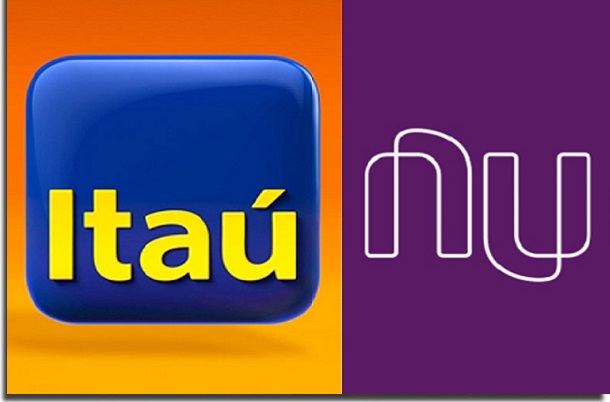Traditional banks do not need much presentation. After all, we all need to deal with them at some point. The different types of digital bank that have appeared in recent years and that have attracted a lot of attention. This is especially true for those who want to manage their finances in a different and more modern way. Of course, because it is so recent, the debt of digital bank versus traditional bank ends up being quite common.
Many people do not know the positive and negative points of each, for example. Other than that, there are those who simply do not trust digital banks for lack of information. To help you learn more about the two and decide between a digital bank vs. traditional bank, we detail their main differences. Check it out below!
Digital Bank

If you don't know anything about digital banking, the concept can be a little confusing at first. It is worth starting by saying that they have nothing to do with credit card apps or even digital wallet apps, like PayPal.
Digital banks offer you a checking account, investment options (if you want to make money), the possibility to pay bills and make transfers. The difference is that everything is done on their app or on an official website.
Basically, there is no physical agency. This can be both good and bad at the same time. It all depends on what you need and the possible problems you may have with your account.
Traditional bench
As we mentioned, traditional banks do not need an introduction. They offer everything digital banks have, but they also have several physical agencies.
So, you can solve problems or take actions personally. This also has a positive and negative side, as there are certain things that are still accomplished in person.
This means that there is more bureaucracy, queues and possible time wasted on something that could be solved online. Other than that, I can't say that the online service or the official apps of traditional banks are very good.
Fees and fees
Now that we have talked a little bit about the basics of digital banking vs. traditional banking, it is worth mentioning one of the most important facts: rates and fees. All traditional banks charge fees for you to have a checking account with them, for example.
There are even more basic versions without a fee, but the actions of these accounts are very limited and not suitable for most people. In this sense, digital banks are totally different.
Most of them do not have fees to have a checking account, manage their money, make transfers and pay bills. In general, only withdrawals and certain transfers (depending on the bank) are charged.
Credit and debit card

As in traditional banks, digital ones also offer credit and debit cards. In many digital banks, the advantage is that there is no annual fee to maintain the card and it is possible to use virtual versions of the same if you do not want to carry the plastic card everywhere.
Of course, there are traditional banks that also offer similar options, but even rarer compared to digital ones.
Applications
Whether the bank is digital or traditional, make sure it has a mobile application where you can access your account. The big difference between apps is that digital banking apps are much more complete.
As there are no other great ways to check information about your account, everything is there and very simple to understand. This is true even for credit and debit card transactions.
This is great to know exactly when your card was used, what the value, which establishment, etc. In this way, you have greater control and can be notified if someone has used it improperly.
The apps of most traditional banks can be quite annoying and unnecessarily difficult to navigate. They work almost like a website in the form of an app instead of being optimized for mobile use.
This slows everything down, including the ability to view your credit card transactions or transactions in your account.
Communication with the bank
This is an important issue to consider. On the one hand, it may seem great to be able to solve everything online with digital banks. Only more serious problems can take a long time to resolve and you may feel vulnerable with responses only over the internet.
Whether or not it is comforting to go to your agency to speak to a manager when a serious problem arises. Even more involving your account, cash or cards. Of course, this can generate bureaucracy and lead to a lengthy process.
So it is good to consider what would make you more relaxed if a problem occurred.
Digital bank vs traditional bank: which is the best?

In the general clash between the digital bank and the traditional bank, it was clear that there are positive and negative points on both sides. No perfect or ideal format for all types of customers.
Currently, there are not many reasons for not having a secondary account with a digital bank. You can have many benefits by not dealing with fees, annuities and by tracking your transactions with ease in digital banking.
At the same time, traditional banks are still quite comprehensive. They are accepted by more establishments in certain situations and still occupy a very important position in our country.
What can we say, that it is really worth testing a digital bank instead of making a definitive exchange. This goes even for those who are starting to work from home to earn extra income and need an account without fees.
Did you like the tips?
Did you take advantage of our tips to find out which is the best between digital banking vs. traditional banking? Do not forget to leave your comment telling us what you think and if there are other tips on digital banks that you would like to see.
